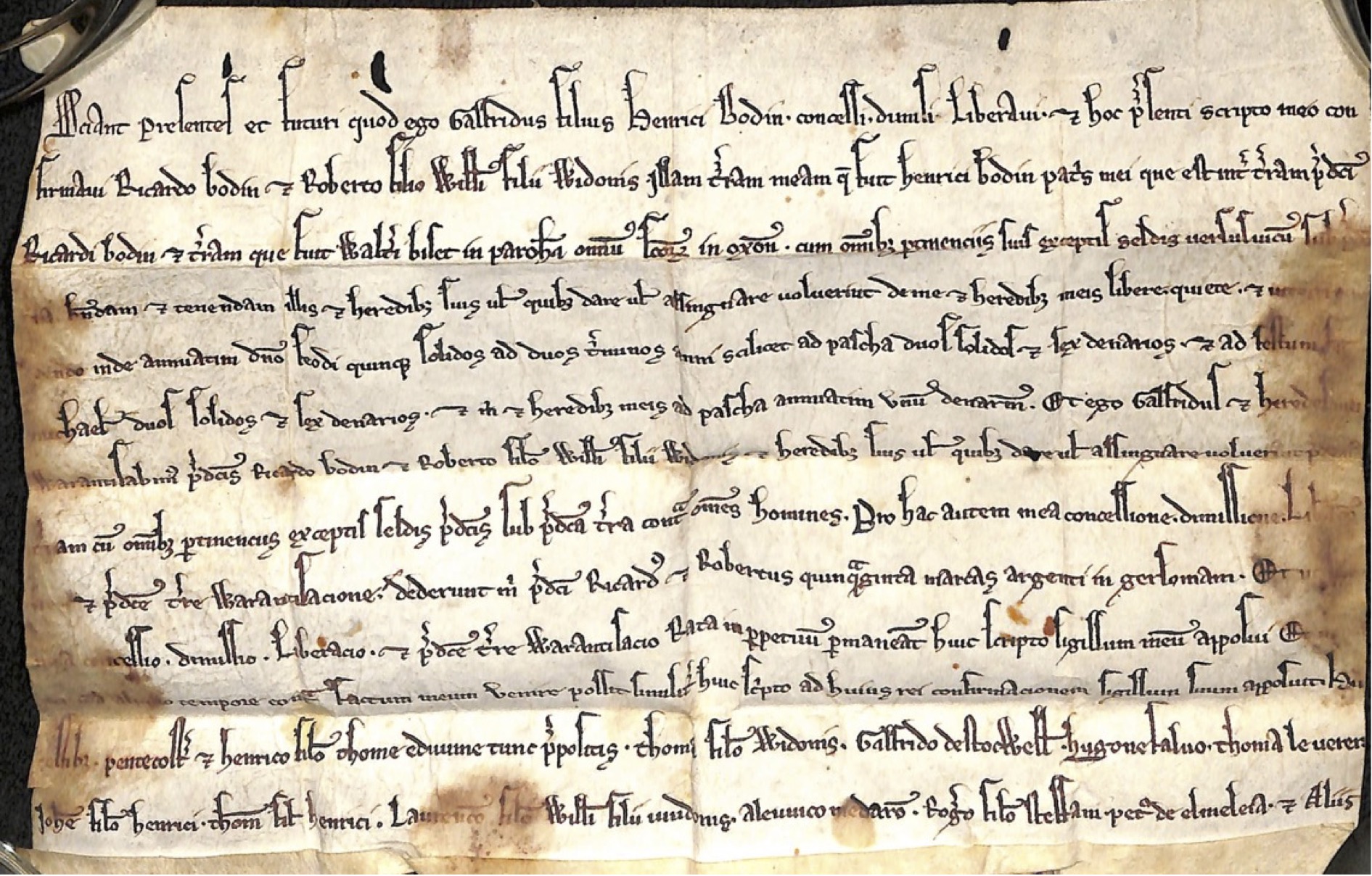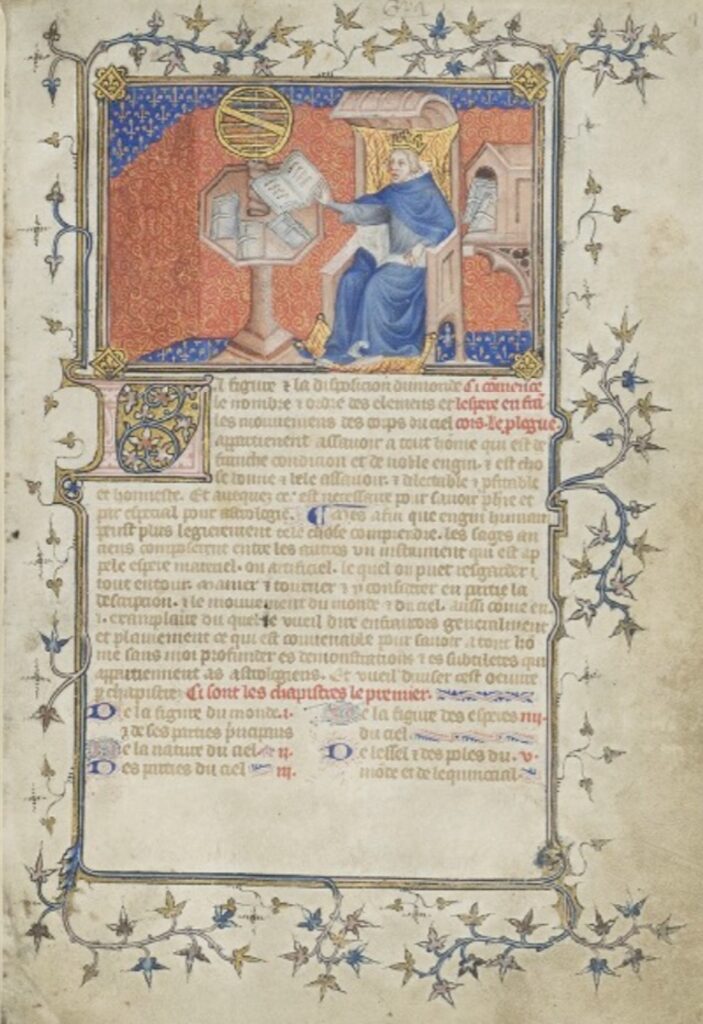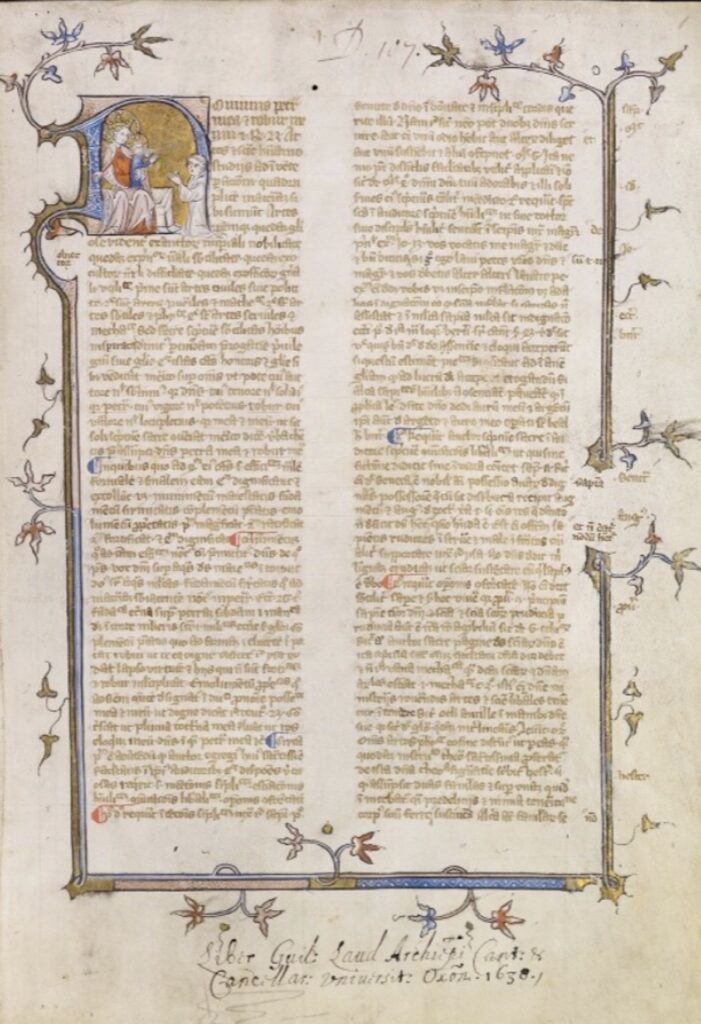All seminars will take place in the Weston Library, Horton Room, 2.15 – 3.45 on Monday afternoons in 2nd, 4th, 6th, and 8th week. All are welcome; a University or Bodleian reader card is usually required to access the seminar room. Manuscripts will be shown. For further information contact matthew.holford@bodleian.ox.ac.uk or andrew.dunning@bodleian.ox.ac.uk
Hilary Term 2026
Header image: St John’s College MS 167 from Syon Abbey
26th January: ‘Manuscripts in the hands of Franciscus Junius (1591-1677)’, Kees Dekker (Groningen)
9th February: ‘The Bodleian’s Gaignières Collection: A paper museum for Gothic tombs’, Emily Guerry (Oxford)
23rd February: ‘The Bruce Codex (MS. Bruce 96): Answering the Riddles of Coptic Gnostic Manuscript’, Eric Crégheur (Université Laval)
9th March: ‘Pen-Flourishing and the Boundaries of Meaning’, Seamus Dwyer (Cambridge)
Hilary Term 2023
16 Jan. (week 1): Laure Miolo (University of Oxford), “Astronomy and astrology in fourteenth-century Oxford: MS. Digby 176 in context”
30 Jan. (week 3): Laura Saetveit Miles (University of Bergen), “The Influence of St. Birgitta of Sweden’s Revelationes in Late-Medieval England”
13 Feb (week 5): Sonja Drimmer (University of Massachusetts Amherst): “The ‘Genealogy Industry’: Codicological Diversity in England, c.1400–c.1500.”
27 Feb. (week 7): Laura Light (Les Enluminures), “Latin Bibles in England c. 1200-c. 1230”
Astronomy and astrology in fourteenth-century Oxford: MS. Digby 176 in context
The manuscript Oxford, Bodleian, Digby 176 is a key witness for better understanding the astronomical and astrological practices and innovations of a group of practitioners trained in Oxford around mid-fourteenthcentury. This group of scholars sharing a same background and interest in the ‘science of the stars’ (scientia stellarum) was closely linked to Merton College. Modern historiography mainly tended to focus on the so-called calculatores, eclipsing the scientific activities of this circle of astronomers and astrologers. In this group, Simon Bredon (d. 1372) or William Reed (d. 1385) played the role of patrons, providing subsidies, books and doubtless a scientific expertise. The codex Oxford, Bodleian, Digby 176 is representative of these activities and intellectual exchanges. It also allows to better understand the earliest phase of reception of Alfonsine astronomy in England and the role played by William Reed in this circle. This composite volume assembled by William Reed displays highly sophisticated and cutting-edge scientific innovations fostered by a rapid flow of information and technical data within this ‘community of learning’. Finally, Oxford, Bodleian Library, MS. Digby 176 also raises the problem of the complementary practices between astronomy and astrology, and the growing specialisation of scholars in one or the other of these disciplines.




